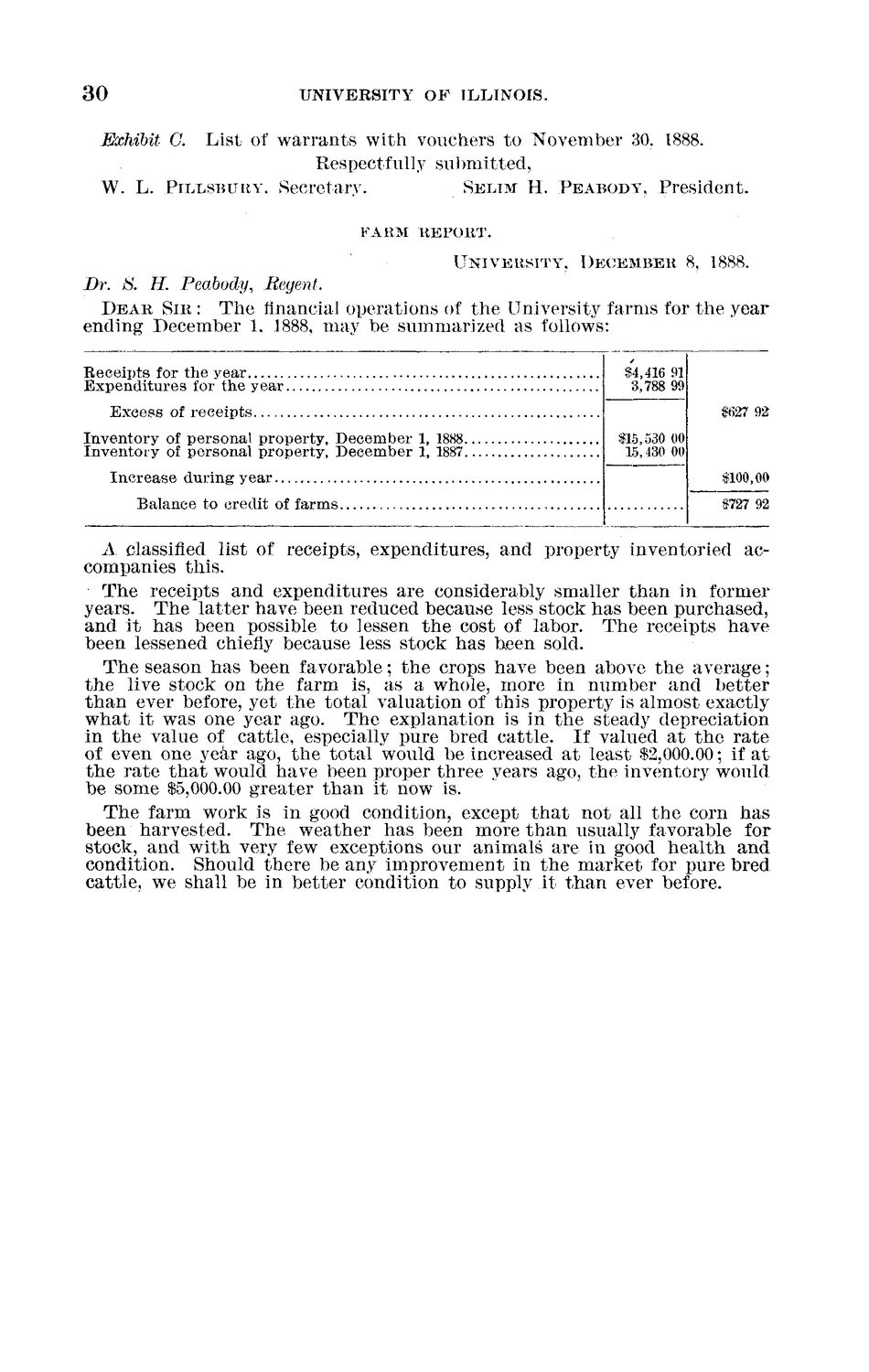| |
| |
Caption: Board of Trustees Minutes - 1890
This is a reduced-resolution page image for fast online browsing.

EXTRACTED TEXT FROM PAGE:
30 UNIVERSITY O F ILLINOIS. Exhibit C. List of warrants with vouchers to 'November 30. 1888. Respectfully submitted, W. L. PILLSBIIRY, Secretary. SELIM H. PEABODY, President. FARM REPORT. UNIVERSITY, DECEMBER 8, 1888. Dr. & H. Peabody, Regent. D E A R SIR : The financial operations of the University farms for the year ending December 1, 1888, may be summarized as follows: Receipts for the year Expenditures for the year Excess of receipts Inventory of personal property, December 1, 1888 Inventory of personal property, December 1, 1887 Increase during year Balance to credit of farms $4,416 91 3,788 99 $627 92 $15,530 00 15,430 00 $100,00 1727 92 A classified list of receipts, expenditures, and property inventoried accompanies this. The receipts and expenditures are considerably smaller than in former years. T h e latter have been reduced because less stock has been purchased, and i t has been possible to lessen t h e cost of labor. The receipts have been lessened chiefly because less stock has been sold. The season has been favorable; t h e crops have been above t h e average; the live stock on the farm is, as a whole, more in number and better than ever before, yet t h e total valuation of this property is almost exactly what it was one year ago. The explanation is in the steady depreciation in t h e value of cattle, especially pure bred cattle. If valued at t h e rate of even one year ago, t h e total would be increased a t least $2,000.00; if a t the rate t h a t would have been proper three years ago, the inventory would be some $5,000.00 greater than it now is. The farm work is in good condition, except t h a t not all t h e corn has been harvested. The weather has been more than usually favorable for stock, and with very few exceptions our animals are in good health and condition. Should there be any improvement in the market for pure bred cattle, we shall be in better condition to supply it than ever before.
| |